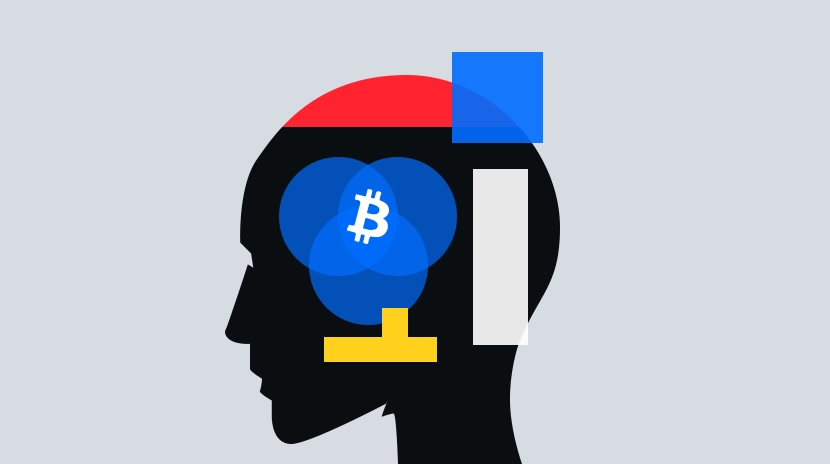تعريف GitHub

ما هو GitHub؟
GitHub هو منصة لاستضافة الشيفرة البرمجية والتعاون تم تطويرها اعتمادًا على Git، وتهدف إلى تتبع تاريخ الشيفرة، وتمكين التعاون بين عدة أفراد، ودعم سير العمل المؤتمت. تُركز المنصة العمليات الأساسية للتطوير، ما يجعل العمل الجماعي الشفاف أكثر سهولة لفرق التطوير.
Git هو أداة لإدارة الإصدارات تُسجل كل تغيير كنقطة حفظ، ما يتيح سهولة التراجع والمقارنة. يعزز GitHub ذلك من خلال واجهة ويب، وإدارة الأذونات، وميزات التعاون، ما يجعل تنظيم المشاريع والمساهمة فيها أكثر كفاءة.
في قطاع Web3، يستضيف GitHub الشيفرة البرمجية للعقود الذكية وتطبيقات اللامركزية (DApps)، ما يتيح لأعضاء المجتمع مراجعة الشيفرة بشكل علني، وتقديم التحسينات، وإعادة استخدام المكتبات البرمجية. بذلك، يُنشئ بيئة تطوير مفتوحة.
لماذا يُعد GitHub مهمًا لتطوير Web3؟
GitHub ضروري لـ Web3 لأن العقود الذكية تتطلب الشفافية وقابلية التدقيق، ويوفر GitHub تعاونًا عامًا وتتبعًا تاريخيًا بشكل مدمج. هذا يجعل مراجعة الشيفرة، والاختبار، وفحوصات الأمان أكثر سهولة للتحقق المجتمعي.
على سبيل المثال، تُستضاف عادةً عقود Solidity أو برامج Rust (المستخدمة في سلاسل الكتل مثل Solana) على GitHub. يمكن للمراجعين ومطوري المجتمع تقديم تغييرات عبر طلبات السحب، حيث تتم مراجعتها ودمجها من قبل القائمين على المشروع، ما يضمن تطورًا موثوقًا لقاعدة الشيفرة البرمجية.
كذلك، يمكن لـ GitHub Actions (سير العمل المؤتمت) تشغيل الاختبارات وفحوصات الأمان بعد كل عملية حفظ، ما يقلل من مخاطر النشر ويلبي معايير موثوقية Web3.
ما هي الميزات الأساسية في GitHub؟
تتضمن الميزات الأساسية في GitHub المستودعات، الحفظات، الفروع، طلبات السحب، تتبع المشاكل، وActions. هذه الأدوات تغطي سير العمل الكامل من تخزين الشيفرة إلى التعاون والأتمتة.
- المستودع: يعمل كمجلد للمشروع يخزن الشيفرة وتاريخها.
- الحفظة (Commit): لقطة للتغييرات، مفيدة للتراجع والمقارنة.
- الفرع: خط تطوير متوازٍ يتيح لأكثر من شخص العمل بشكل مستقل.
- طلب السحب (Pull Request): اقتراح تغييرات من فرع ليتم دمجها في قاعدة الشيفرة الرئيسية، غالبًا مع مراجعة ومناقشة الشيفرة.
- المشكلة (Issue): أداة لتتبع المهام أو الأخطاء تُستخدم لتسجيل المشاكل أو المتطلبات أو النقاشات.
- GitHub Actions: سير عمل مؤتمت يتم تشغيله بواسطة أحداث (مثل تثبيت الاعتمادات، تشغيل الاختبارات، بناء الإصدارات)، ما يجعل المهام المتكررة أكثر موثوقية.
كيف يعمل التعاون على GitHub؟
يعتمد التعاون الفعّال على سير عمل واضح وإدارة دقيقة للأذونات. إليك خطوات عملية مباشرة:
الخطوة 1: أنشئ مستودعًا وابدأ بملف README لتوضيح هدف المشروع، وإرشادات الاستخدام، وقواعد المساهمة، ما يسهل التواصل.
الخطوة 2: أنشئ حفظة (Commit) وأضف رسالة موجزة لوصف التغيير لتسهيل التتبع والتدقيق.
الخطوة 3: أنشئ فرعًا لتطوير ميزات جديدة أو إصلاح المشاكل على فروع منفصلة للحفاظ على استقرار الفرع الرئيسي.
الخطوة 4: افتح طلب سحب ووضح تغييراتك ودوافعك، وادعُ للمراجعة، وادمج بعد المناقشة.
الخطوة 5: استخدم تتبع المشاكل، وافتح مشكلة لكل مهمة أو خطأ واربطها بطلبات السحب ذات الصلة لتحقيق دورة تغذية راجعة مغلقة.
الخطوة 6: اضبط الأتمتة باستخدام Actions لتشغيل الاختبارات والبناءات على كل حفظة أو طلب سحب لضمان الجودة.
كيف تتم إدارة شيفرة العقود الذكية على GitHub؟
تركز إدارة شيفرة العقود الذكية على GitHub على قابلية التدقيق، والاختبار، وإمكانية إعادة الإنتاج. الأساس هو دمج الاختبارات وفحوصات الأمان في سير العمل اليومي.
بالنسبة لعقود Solidity، يمكنك إعداد اختبارات وحدات وبيئات محاكاة لتعمل تلقائيًا على طلبات السحب، ما يضمن اجتياز كل تغيير للاختبارات قبل النشر ويقلل المخاطر الأمنية.
تُستخدم أدوات التحليل الساكن عبر GitHub Actions لاكتشاف مشاكل مثل إعادة الدخول أو تجاوز السعة أثناء التطوير.
يجب أيضًا حفظ نصوص النشر ومعلمات التكوين في المستودع مع علامات الإصدارات التي تحدد كل إصدار، ما يساعد المراجعين على التحقق من مصادر شيفرة البايت وإعدادات المترجم لكل نشر.
كيف يرتبط GitHub بـ Git؟
Git هو أداة إدارة إصدارات محلية تعمل كآلة زمنية للشيفرة البرمجية، بينما GitHub منصة إلكترونية تعتمد على Git وتضيف واجهات التعاون وإدارة الأذونات.
باختصار: Git يتعامل مع إدارة التغييرات التقنية؛ GitHub يدير التعاون والرؤية. تستخدم Git محليًا لحفظ التغييرات وإنشاء الفروع، ثم تدفع التحديثات إلى GitHub للمراجعة والدمج مع الآخرين.
كيف تختار ترخيص المصدر المفتوح على GitHub؟
تحدد تراخيص المصدر المفتوح كيفية استخدام الآخرين لشيفرتك البرمجية. عند اختيار الترخيص، حدد أهدافك بوضوح: هل تسمح بالاستخدام التجاري؟ هل يجب أن تظل الأعمال المشتقة مفتوحة المصدر؟ هل تحتاج إلى حماية براءات الاختراع؟
من التراخيص الشائعة:
- MIT (مرن، يسمح بالاستخدام التجاري)
- Apache-2.0 (مرن مع حماية براءات الاختراع)
- GPL-3.0 (يتطلب بقاء الأعمال المشتقة مفتوحة المصدر)
يتيح GitHub اختيار قوالب الترخيص عند إنشاء المستودعات؛ وثّق القيود في ملف README لتوضيح الشروط.
غالبًا ما تفضل مشاريع Web3 التراخيص المرنة لإتاحة إعادة الاستخدام والتعاون. إذا كان هناك امتثال أو حوكمة مجتمعية، يمكن أن تحافظ التراخيص الأكثر صرامة على الانفتاح والاتساق.
ما هي المخاطر الأمنية الرئيسية على GitHub؟
تشمل المخاطر الشائعة دفع المفاتيح إلى المستودعات عن طريق الخطأ، وثغرات سلسلة توريد الاعتمادات، وسوء إدارة الأذونات. بالنسبة للشيفرة المتعلقة بالمحافظ أو مفاتيح المعاملات، قد يؤدي ذلك إلى خسائر مالية مباشرة.
أفضل الممارسات:
- لا تحفظ المفاتيح الخاصة أو مفاتيح API في قاعدة الشيفرة البرمجية. استخدم متغيرات البيئة أو GitHub Secrets للمعلومات الحساسة.
- فعّل المصادقة الثنائية (2FA)، وقيّد أذونات الكتابة، وراجع المتعاونين والرموز بشكل منتظم.
- استخدم تحديثات الاعتمادات والتنبيهات الأمنية لسد الثغرات المعروفة بسرعة لمنع هجمات سلسلة التوريد.
- اشترط اجتياز الاختبارات وفحوصات الأمان لجميع طلبات السحب قبل الدمج لمنع التغييرات الضارة.
كيف يُستخدم GitHub مع واجهة Gate البرمجية وبوتات التداول؟
يُستخدم GitHub لإدارة شيفرة بوتات التداول المبنية على واجهة Gate البرمجية المفتوحة، مع ضمان الجودة والأمان عبر الأتمتة.
الخطوة 1: أنشئ مستودعًا خاصًا على GitHub مع ملف README يوضح المخاطر، ولا تعرض المعلومات الحساسة علنًا. الخطوة 2: احفظ مفاتيح Gate API والمفاتيح الخاصة في Secrets، ولا تحفظها في قاعدة الشيفرة البرمجية. الخطوة 3: أضف نصوص اختبار تحاكي تنفيذ الأوامر واستعلام الرصيد باستخدام بيانات وهمية أو بيئات اختبارية لتجنب مخاطر الأموال الحقيقية. الخطوة 4: استخدم GitHub Actions لتشغيل الاختبارات على كل حفظة، وقيّد سير العمل على الفروع الموثوقة فقط. الخطوة 5: اضبط المهام المجدولة لاختبار الاستراتيجيات أو توليد التقارير، ولا تحتفظ بمفاتيح التشفير طويلة الأمد في Actions لتقليل المخاطر. الخطوة 6: ضع علامات على الإصدارات مع معايير الاستراتيجية والتغييرات لتسهيل التتبع، واستخدم المشاكل لتتبع الشذوذ والتراجع.
أهم النقاط حول GitHub
يجمع GitHub بين إدارة الإصدارات، والتعاون، والأتمتة في منصة واحدة، ما يجعله مثاليًا لتطوير العقود الذكية وتطبيقات DApp في Web3. فهم العلاقة بين Git وGitHub، وتنظيم العمل عبر المستودعات وطلبات السحب، وضمان الاختبارات والأمان عبر Actions، واختيار الترخيص المناسب، وإدارة المفاتيح بحذر جميعها عناصر أساسية لاستخدام GitHub بشكل آمن وفعال. للمشاريع التي تتضمن أموالًا، عزز دائمًا إدارة الأذونات والمعلومات السرية لمنع الخسائر الناتجة عن تسرب المفاتيح.
الأسئلة الشائعة
هل يمكن للآخرين رؤية مستودع GitHub الخاص بي؟
لا، المستودعات الخاصة متاحة لك وللمتعاونين الذين تدعوهم فقط، ولا يمكن للآخرين رؤيتها مطلقًا. المستودعات العامة مرئية للجميع. يمكنك التبديل بين خاص وعام في إعدادات المستودع أو منح مستخدمين محددين أذونات مختلفة (عرض فقط أو تحرير).
ما الفرق بين Git وGitHub؟
Git هو نظام إدارة إصدارات محلي، بينما GitHub منصة سحابية مبنية على Git للتعاون البرمجي. ببساطة: Git هو المحرك، GitHub هو المرآب—يدير Git جميع إصدارات الشيفرة البرمجية محليًا، بينما يخزن GitHub الشيفرة البرمجية عبر الإنترنت للتعاون. استخدامهما معًا يمنحك أقصى استفادة.
كيف يمكن للمبتدئين البدء بسرعة في العمليات الأساسية على GitHub؟
سجّل حسابًا وأنشئ أول مستودع لك. تعلم ثلاث عمليات رئيسية: نسخ المستودع محليًا (clone)، حفظ تغييرات الشيفرة البرمجية (commit)، ودفع التحديثات إلى السحابة (push). هذه تشكل أساس سير العمل اليومي. ثبّت أداة Git لسطر الأوامر أو استخدم واجهة GitHub Desktop الرسومية، وكلاهما يدعم هذه الإجراءات، والواجهة الرسومية أكثر سهولة للمبتدئين.
هل يمكنني استخدام مشاريع المصدر المفتوح على GitHub مباشرة لأغراض تجارية؟
يعتمد ذلك على ترخيص المشروع المفتوح المصدر. تراخيص MIT وApache تسمح بالاستخدام التجاري، بينما GPL تتطلب أن تبقى الأعمال المشتقة مفتوحة المصدر أيضًا. تحقق دائمًا من ملف LICENSE لمعرفة الشروط المحددة قبل استخدام أي مشروع لتجنب المخاطر القانونية، فلكل ترخيص قيود مختلفة.
كيف يمكنني تخزين مفاتيح API والمعلومات الحساسة بأمان على GitHub؟
لا تحفظ مفاتيح API أو المفاتيح الخاصة أو البيانات الحساسة مباشرة في مستودعك. أفضل ممارسة هي استخدام متغيرات البيئة (.env) أو GitHub Secrets، المصممة لسير عمل CI/CD مع تشفير تلقائي. إذا قمت بحفظ معلومات حساسة عن طريق الخطأ، أعد ضبط تلك المفاتيح فورًا واحذف الحفظات المرتبطة بها نهائيًا من تاريخ المستودع.
المقالات ذات الصلة

مراجعة لأعلى عشرة بوتات ميم

ما هي توكينات NFT في تليجرام؟
